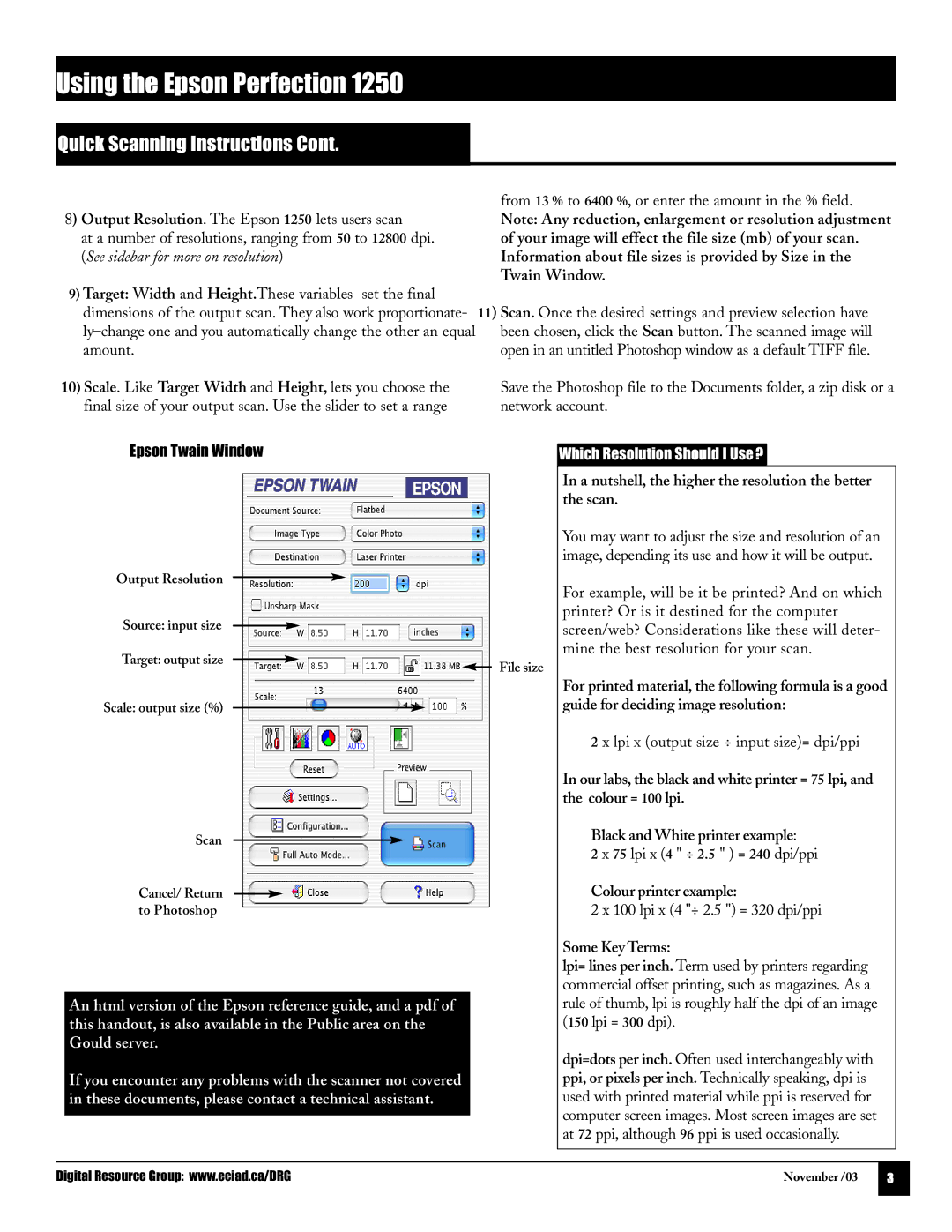
Using the Epson Perfection 1250
Quick Scanning Instructions Cont.
8) Output Resolution. The Epson 1250 lets users scan
at a number of resolutions, ranging from 50 to 12800 dpi. (See sidebar for more on resolution)
9)Target: Width and Height.These variables set the final dimensions of the output scan. They also work proportionate-
10) Scale. Like Target Width and Height, lets you choose the final size of your output scan. Use the slider to set a range
from 13 % to 6400 %, or enter the amount in the % field.
Note: Any reduction, enlargement or resolution adjustment of your image will effect the file size (mb) of your scan. Information about file sizes is provided by Size in the Twain Window.
11) Scan. Once the desired settings and preview selection have been chosen, click the Scan button. The scanned image will open in an untitled Photoshop window as a default TIFF file.
Save the Photoshop file to the Documents folder, a zip disk or a network account.
Epson Twain Window | Which Resolution Should I Use? |
Output Resolution
Source: input size
Target: output size
Scale: output size (%)
Scan
Cancel/ Return to Photoshop
![]() File size
File size
In a nutshell, the higher the resolution the better the scan.
You may want to adjust the size and resolution of an image, depending its use and how it will be output.
For example, will be it be printed? And on which printer? Or is it destined for the computer screen/web? Considerations like these will deter- mine the best resolution for your scan.
For printed material, the following formula is a good guide for deciding image resolution:
2 x lpi x (output size ÷ input size)= dpi/ppi
In our labs,the black and white printer = 75 lpi,and the colour = 100 lpi.
Black and White printer example:
2 x 75 lpi x (4 " ÷ 2.5 " ) = 240 dpi/ppi
Colour printer example:
2 x 100 lpi x (4 "÷ 2.5 ") = 320 dpi/ppi
Some Key Terms:
An html version of the Epson reference guide, and a pdf of this handout, is also available in the Public area on the Gould server.
If you encounter any problems with the scanner not covered in these documents, please contact a technical assistant.
lpi= lines per inch. Term used by printers regarding commercial offset printing, such as magazines. As a rule of thumb, lpi is roughly half the dpi of an image (150 lpi = 300 dpi).
dpi=dots per inch. Often used interchangeably with ppi, or pixels per inch. Technically speaking, dpi is used with printed material while ppi is reserved for computer screen images. Most screen images are set at 72 ppi, although 96 ppi is used occasionally.
Digital Resource Group: www.eciad.ca/DRG | November /03 | 3 |
